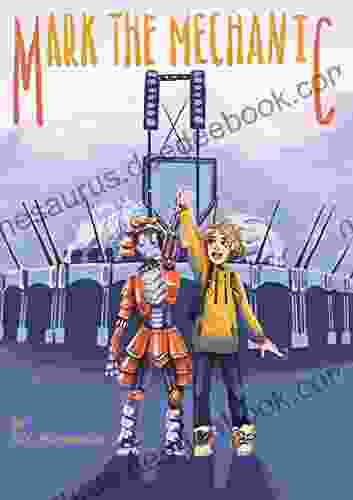Miscommunications, Errors, and Mistakes in Media: Recognizing and Mitigating the Impact on Our Thinking

In today's digital age, media consumption has become an integral part of our daily lives. We rely on various forms of media, including social media, news outlets, and entertainment platforms, to stay informed, entertained, and connected with others. However, it is crucial to acknowledge that media is not always a reliable source of accurate information, and miscommunications, errors, and mistakes can sometimes occur.
These inaccuracies can have a significant impact on our thinking and understanding of the world. Misinformation, for example, can lead to the spread of false or misleading information, which can influence our beliefs, decisions, and actions. Errors, on the other hand, may result in incorrect or distorted data, while mistakes can be unintentional slips or omissions that may affect the credibility or reliability of the information presented.
4.8 out of 5
| Language | : | English |
| File size | : | 3600 KB |
| Text-to-Speech | : | Enabled |
| Enhanced typesetting | : | Enabled |
| Word Wise | : | Enabled |
| Print length | : | 345 pages |
| Screen Reader | : | Supported |
Given the prevalence of media in our lives, it is essential to develop critical thinking skills and become more discerning consumers of information. By understanding the potential for miscommunications, errors, and mistakes in media, we can better evaluate the accuracy and reliability of the information we encounter and make more informed decisions.
Understanding the Causes of Miscommunications, Errors, and Mistakes in Media
There are several factors that can contribute to miscommunications, errors, and mistakes in media. These include:
- Human Error: Mistakes can occur at any stage of the media production process, from reporting and editing to transmission and dissemination. These errors may be unintentional and often result from human limitations, such as misunderstandings, oversights, or carelessness.
- Misinterpretation: Sometimes, miscommunications occur due to differences in interpretation or perspective. What one person intends to convey may be understood differently by another, leading to misunderstandings or inaccurate representations.
- Bias: Media outlets and individual journalists may have inherent biases that influence their reporting and presentation of information. These biases can unintentionally lead to the omission or distortion of facts, resulting in misleading or inaccurate content.
- Sensationalism: In the pursuit of ratings or attention, some media outlets may prioritize sensationalism over accuracy. This can lead to the exaggeration or fabrication of stories, which can contribute to the spread of misinformation.
The Impact of Miscommunications, Errors, and Mistakes on Our Thinking
Miscommunications, errors, and mistakes in media can have a range of negative consequences, including:
- Misinformation: Inaccurate or misleading information can distort our understanding of the world and lead to incorrect beliefs or assumptions. This can have implications for our decision-making, voting behavior, and trust in institutions.
- Diminished Trust: Repeated exposure to inaccurate or biased information can erode public trust in media outlets and journalists. This can make it more difficult for people to find credible sources of information and make informed decisions.
- Polarization: Misinformation and errors can contribute to the polarization of society by reinforcing pre-existing biases and creating echo chambers where individuals only encounter information that confirms their existing beliefs.
- Erosion of Critical Thinking: Reliance on inaccurate or biased information can weaken critical thinking skills and make individuals more susceptible to manipulation or persuasion.
Strategies for Recognizing and Mitigating Miscommunications, Errors, and Mistakes in Media
To combat the negative impact of miscommunications, errors, and mistakes in media, it is essential to develop strategies for recognizing and mitigating their influence on our thinking. These strategies include:
- Critical Evaluation: When encountering information from any media source, it is crucial to evaluate it critically. Consider the source, its biases, and the evidence presented. Look for corroborating information from multiple sources to verify the accuracy and reliability of the information.
- Media Literacy: Media literacy involves understanding how media works, how it shapes our perceptions, and how to critically evaluate media content. By developing media literacy, we can become more discerning consumers of information and less susceptible to manipulation.
- Fact-Checking: If you encounter information that seems questionable or too good to be true, fact-check it. There are numerous reputable fact-checking organizations that can help you verify the accuracy of information and identify misinformation.
- Diversify Media Consumption: To avoid exposure to biased or inaccurate information, it is important to diversify your media consumption. Seek out information from a variety of sources with different perspectives to get a more balanced understanding of issues.
- Support Credible Media: Support media outlets that prioritize accuracy, fairness, and transparency. By subscribing to reputable news organizations and supporting independent journalism, you can help ensure the availability of reliable information.
Miscommunications, errors, and mistakes in media are an unfortunate reality that can have a significant impact on our thinking and understanding of the world. By developing critical thinking skills, practicing media literacy, and diversifying our media consumption, we can become more discerning consumers of information and less susceptible to the negative consequences of inaccurate or biased media.
Remember, it is always important to approach media with a healthy dose of skepticism and to verify the accuracy and reliability of information before making judgments or taking action. By being vigilant and proactive, we can mitigate the impact of miscommunications, errors, and mistakes in media and ensure that we are making informed and well-rounded decisions.
4.8 out of 5
| Language | : | English |
| File size | : | 3600 KB |
| Text-to-Speech | : | Enabled |
| Enhanced typesetting | : | Enabled |
| Word Wise | : | Enabled |
| Print length | : | 345 pages |
| Screen Reader | : | Supported |
Do you want to contribute by writing guest posts on this blog?
Please contact us and send us a resume of previous articles that you have written.
 Novel
Novel Page
Page Chapter
Chapter Story
Story Genre
Genre Library
Library Paperback
Paperback E-book
E-book Newspaper
Newspaper Bookmark
Bookmark Shelf
Shelf Bibliography
Bibliography Foreword
Foreword Preface
Preface Footnote
Footnote Codex
Codex Bestseller
Bestseller Classics
Classics Library card
Library card Narrative
Narrative Biography
Biography Memoir
Memoir Reference
Reference Encyclopedia
Encyclopedia Dictionary
Dictionary Thesaurus
Thesaurus Character
Character Librarian
Librarian Catalog
Catalog Study
Study Lending
Lending Academic
Academic Rare Books
Rare Books Special Collections
Special Collections Interlibrary
Interlibrary Storytelling
Storytelling Awards
Awards Reading List
Reading List Theory
Theory Textbooks
Textbooks Mark Groome
Mark Groome Dennis C Brewer
Dennis C Brewer Dean Lewis
Dean Lewis Stuart Elden
Stuart Elden Alex Watson
Alex Watson John T Shaw
John T Shaw John Lukacs
John Lukacs Farrah Alexander
Farrah Alexander Peggy A Sissel
Peggy A Sissel June Mackey
June Mackey Laurent Grisel
Laurent Grisel Carol Quinn
Carol Quinn Vipra Jena
Vipra Jena Phil Jourdan
Phil Jourdan Robert J Richey
Robert J Richey Richard Elliott
Richard Elliott Mona Lisa Harding
Mona Lisa Harding Rod Liddle
Rod Liddle Caisey Quinn
Caisey Quinn Alex Villavasso
Alex Villavasso
Light bulbAdvertise smarter! Our strategic ad space ensures maximum exposure. Reserve your spot today!
 Gage HayesFollow ·19k
Gage HayesFollow ·19k Roy BellFollow ·6.3k
Roy BellFollow ·6.3k Scott ParkerFollow ·12.3k
Scott ParkerFollow ·12.3k Cade SimmonsFollow ·11k
Cade SimmonsFollow ·11k Fred FosterFollow ·8.6k
Fred FosterFollow ·8.6k Hunter MitchellFollow ·11.3k
Hunter MitchellFollow ·11.3k Paul ReedFollow ·6.4k
Paul ReedFollow ·6.4k William FaulknerFollow ·10k
William FaulknerFollow ·10k

 Gary Reed
Gary ReedWeb to Web for Beginners: A Comprehensive Guide to...
In today's interconnected world, websites...

 Elliott Carter
Elliott CarterThe Moon Is Down: John Steinbeck's Poignant Portrait of...
In the annals of literature, John...

 Dalton Foster
Dalton FosterMark The Mechanic: The Incredible Story Of A Young...
In the vibrant realm of robotics, where...

 Fred Foster
Fred FosteriPhone 13 Pro Max User Guide: Everything You Need to Know
The iPhone 13 Pro Max...

 Rodney Parker
Rodney ParkerPope John Paul II: The Pocket Giant Who Inspired Millions
Pope John Paul II, or...
4.8 out of 5
| Language | : | English |
| File size | : | 3600 KB |
| Text-to-Speech | : | Enabled |
| Enhanced typesetting | : | Enabled |
| Word Wise | : | Enabled |
| Print length | : | 345 pages |
| Screen Reader | : | Supported |














